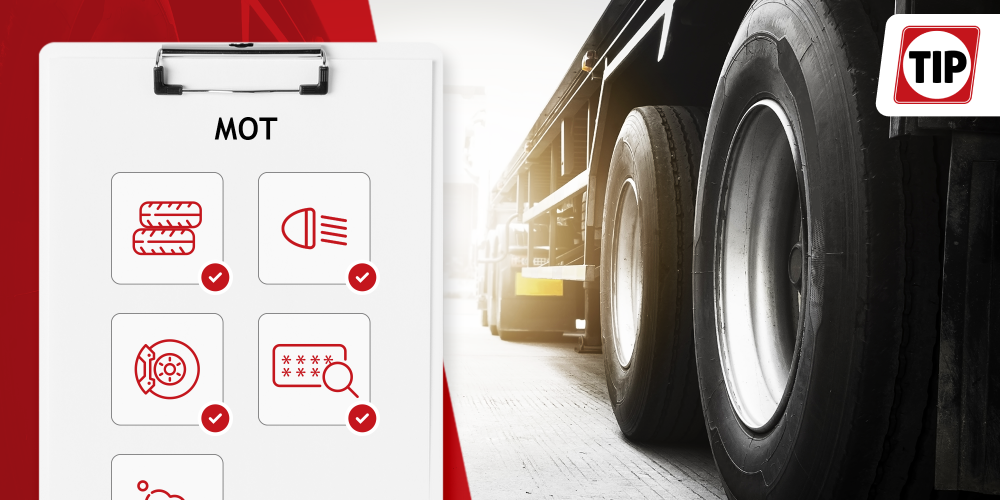Stay ‘compliant’ with an MOT
Owning fleet assets requires you to be aware and understand the legal requirements involved. One of the key things to be aware of is that you have a legal obligation to pass the MOT (Ministry Of Transport) inspection regularly, to verify that your vehicle is roadworthy. Having a MOT inspection ensures that the heavy vehicle is in optimal and safe operating conditions, so you can continue to use it for business and avoid any incidents during its use.
What is MOT?
The MOT is an annual test and it applies to heavy vehicles (trailers, trucks, specialised equipment, etc.) to ensure that the equipment meets safety standards and is roadworthy.
Under your country's legislation, all commercial vehicles over a certain weight travelling to Europe must have an annual MOT test to ensure they are roadworthy and secure. If the vehicle’s weight is above the legislation weight, then it is subject to a separate set of regulations.
What is the purpose?
An MOT ensures your equipment is in a safe operating condition, to protect the driver, the vehicle and other users on the road from a potential incident.
How often do MOT inspections take place?
Usually, commercial vehicles should receive their first test one year after they were first registered, and then annually from that point onwards. However, the scheduling of annual inspections differs per country.
If you do not submit your vehicle for an annual inspection within the mandatory time limit you risk being penalised.
Responsibility and where to pass the MOT
The operator of a vehicle is responsible for ensuring that an MOT is done and done on time, and that includes vehicles that are rented / leased.
An MOT is performed at an Authorised Test Facility (ATF) with the vehicle or trailer tested by a qualified and certified inspector.

What is tested?
The following list includes the basic items inspected on trailers, to ensure that the equipment is safe and operating as intended:
- Unit identification
- Brakes
- Visibility
- Lights, reflector and electrical equipment
- Doors
- Roof
- Axles, wheels, tyres, suspension
- Chassis
- Noise and pollution
- Other equipment
A comprehensive list of just what is tested can be found here : https://www.gov.uk/government/publications/hgv-inspection-manual
What are the different results?
If there are no defects, or there are only ‘minor’ defects without any concern for safety or the environment, a test certificate will be issued. If a vehicle / trailer has ‘major’ or ‘dangerous’ defects, it will fail the MOT.
If a vehicle / trailer fails its MOT, the defect (s) must be repaired and a re-test arranged so that it can continue in operation.
TIP network of ATFs
TIP has a network of locations across the UK and Europe, many of which operate as Authorised Test Facilities (or the country equivalent) that can carry out trailer (and truck) MOTs.
For further information on our locations, please visit www.tip-group.com/en-gb/locations.
More information regarding MOTs for heavy goods vehicles can be found here : https://www.gov.uk/topic/mot/lorry-bus-trailer-annual-test.















